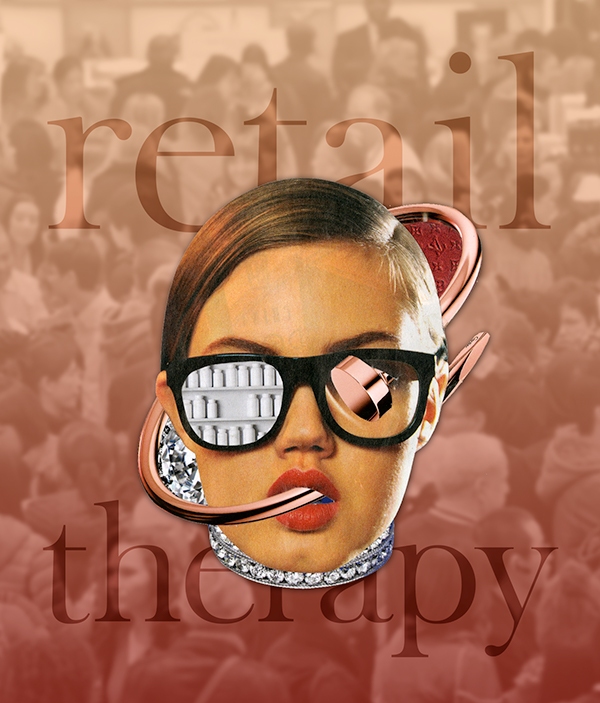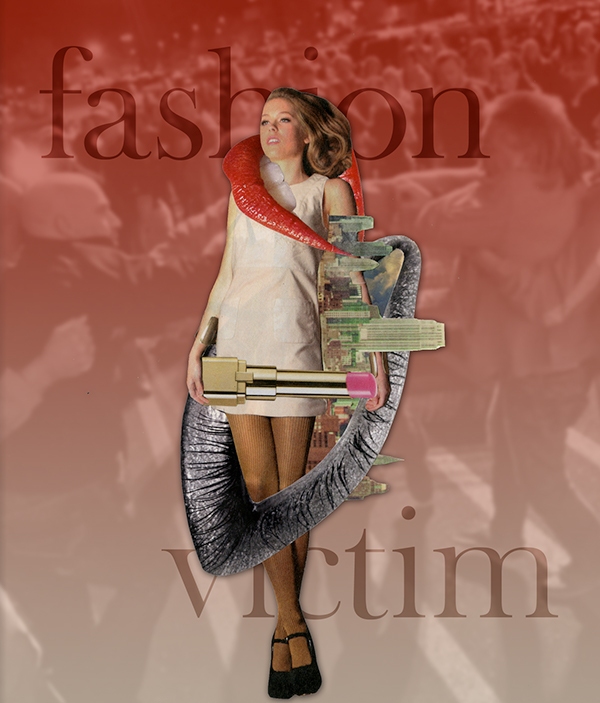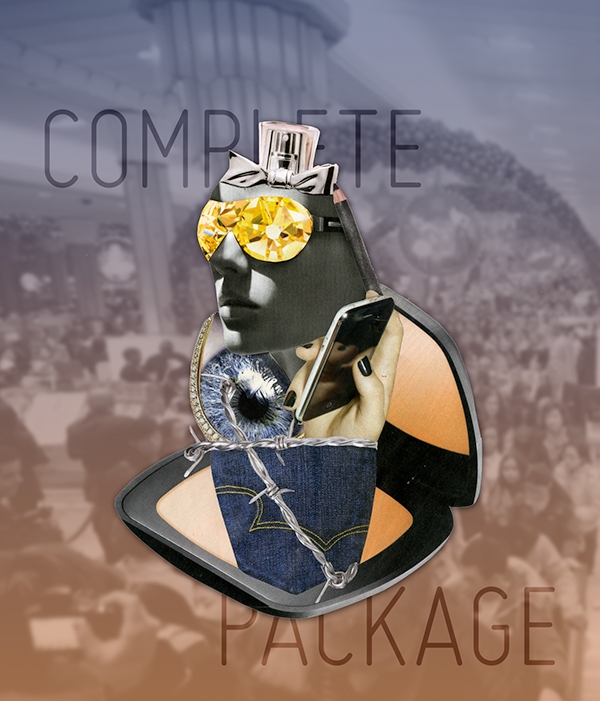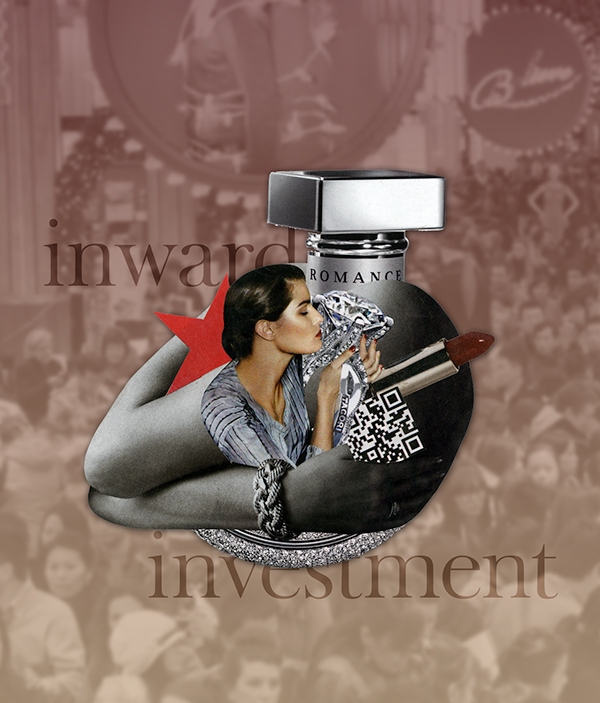2018: The year of sustainable fashion
Here’s why you need to take sustainable fashion seriously ~
“Teaching a child not to step on a caterpillar is as valuable to the child as it is to the caterpillar,” Bradley Miller beautifully explains the importance of life at all levels and not just in human form. It may have taken time, but we are finally on the threshold of newfound awareness with regards to our ecological system.
People are beginning to lean towards green brands that put a conscious effort towards reducing carbon footprint. And so, fashion has turned over a new leaf in 2018 through its mindfulness about “sustainability”.
This “Earth Week” let us look at fashion’s impact on the environment, and how sustainable fashion contributes to a greener world.

Did Sustainable Fashion Just Get Real? Finding Out the Hows and Whys.
Our planet has resources that are only going to last for a limited time. We hence need to undergo a genuine shift in our fashion perspectives to include fabrics and pieces which embrace nature instead of causing a detrimental effect to the environment. An increase in the use of natural dyes instead of toxic colouring agents, and the replacement of non-recyclable materials with fabrics that can be repurposed and recycled, will help our generation and future generations live in a planet that celebrates life in all forms.
Not sure how to choose a brand that values sustainability?
There are several aspects of environmental friendliness that brands are beginning to embrace. Sustainability, however, does not happen overnight. It takes time, and it requires brands and shoppers to be more aware of the environmental impacts of fashion. Let us look at ways in which brands are beginning to go green.
Making a Difference through their Choice of Materials
Organic farming and the humane rearing of animals is one of the most fundamental ways of preserving and promoting biodiversity. Organically grown cotton is free of synthetic agricultural chemicals which harm micro-organisms in the environment and have a damaging effect on the soil. Similarly, organic wool is obtained from sheep that have been kept under ideal conditions and are not exposed to unwanted chemicals.
Needless to say, these methods are more cost-intensive because they do not believe in artificially accelerating the process of growth in plants and animals. While you may end up paying a relatively higher price for pieces made from environment-friendly materials like organic cotton, organic wool, linen, bamboo fibre, recycled polyester, and vegetable dyes; the choice you make will harbour positivism in the light of sticking to a moral code of shopping.
Tip: Do it right by going through the fine print on labels before making your purchase.

Reducing their Carbon-Footprint during Production
One of the key goals of sustainability is to keep ecosystems in place. Working conditions and fair living wages have been a concern for many workers in the garment production industry. Inhumane working conditions impact their lives while also negatively impacting their future. I would advise you to choose design labels that believe in ethical production practices, and that decide to be aware of the working conditions of their employees under contractors and sub-contractors. Vigilance by the brands can truly bring about a positive change.
Another process that greatly deserves attention is the reserve migration system wherein designers tie-up with non-profit organizations and craft clusters to create employment for craftsmen by bringing work to them instead of relocating them to cities where they find it hard to survive given the high cost of living. By doing this, not only can artisans continue living in their own region, but the fashion world is also provided with authentic handcrafted products while keeping traditional crafts alive.
Tip: Do it right by indulging in a conversation with the store manager to find out about the production process of the garments.

Designing Pieces Which Can be Upcycled and Recycled
When you discard clothes as soon as they go out of trend in favour of new ones ~ seasonal fads; you are contributing negatively to the environment and increasing world pollution, since the discarded clothes end up in landfills. The burgeoning impact of fast fashion requires our attention and this is one reason why sustainability has become the keyword that graces the lips of designers and fashion houses.
By investing in upcycled and recycled clothes, you are making room for a positive change in your fashion sensibilities. Upcycling breathes new life into clothing; rework a favourite garment, conceal minor repair on jeans with exquisite embroidery or funky patchwork, or handcraft dining table mats using scraps of couture clothing… The possibilities are endless.
Tip: Do it right by looking for upcycling workshops or by having your designer find ways to recreate an old piece {e.g. a vintage sari} into a new design.

Implementing Timelessness in Fashion
There are trends that last a couple of months and those that last years. Classic pieces always make a comeback or they just don’t fade out of the fashion scene at all. By making fashion sustainable, designers are making an effort to focus on creating lasting trends.
In recent years, we have become addicted to shopping more than we need to and switching our wardrobe to make way for runway trends. With clothes being available at surprisingly low costs, we are inadvertently given the power to buy more and to discard what we already own without thinking twice over the amount spent on them. However, these inexpensive pieces usually come at the price of garment workers working in inhumane conditions, getting paid very low wages, and materials being sourced illegally or going through inorganic manufacturing processes.
By making trends take second place while environmental awareness becomes a priority, design houses/designers can centre their attention on the creation of timeless pieces that do not adhere to the limitations of one fashion season.
Tip: Do it right by choosing clothes that will enjoy a more enduring stay in your wardrobe.

To conclude: 2018 is the year of sustainable fashion. The tables have turned, and fashion this year loves the planet more than it leans towards creating trends. Designers are already beginning to transform their existing business models for ones that have a healthy impact on the planet and its people. As a buyer, ethical shopping necessitates the need for principles that guide you to choose environment-friendly pieces that may reduce your overall buying power to fewer pieces but still warrant quality, and help you relish in the thought that you have played a part in saving our planet.
Do you too look for clothes that are manufactured in an environmentally and socially/ethically conscious manner? Share with us in the comments below!















Let’s make the most of that positivity and explore what it has in store for us… The way we talk about fashion ought to incorporate how to mix and match garments we may already own ~ in a diverse manner, instead of making new purchases.
Yes, Aditi! Fashion isn’t about simply filling your wardrobe, it is tied in with adopting a cognisant strategy.
“I don’t think that ‘eco’ should be a word that immediately conjures up images of oatmeal-coloured garments or garments that are oversized or lacking in any sort of luxury or beauty or detailing or desirability,” ~ Stella McCartney. “I don’t think that things have to look ugly because they’re organic; why can’t they be beautiful as well?”
Sustainable Fashion is Beautiful ❤️ Embracing ethical fashion and altering the way I shop has relieved me of a burden!!
Olivia, taking the time to consider and centre purchases based on quality feels great, doesn’t it!
Fashion isn’t just about burning through money but about being mindful of your world, and the changes in the mood and spirit. ❤️
Yes 🙂 In my assessment, Moushumi, it’s critical to slow down and change one’s propensities. Slow fashion is and should be about the story behind your clothing…
Thank you for such a gorgeous start to my day! ❤️ I think ethical fashion is about acknowledging the story behind each garment, as well as appreciating the joy each painstakingly chosen piece brings!
I absolutely agree, Mansi. It’s time we owned our clothes with pride, rather than our clothes owning us with guilt and insecurity.
I am passionate about sustainable fashion. And would like to add that the sustainable fashion movement is also about cherishing and taking care of the clothes and accessories you already own…
Appreciate your input, Vaishali.
Tanya, thank you so much for the good insight and tips on sustainable fashion! This post is such an extraordinary clarification on what slow fashion means… ❤️
I find myself more serious about conscious fashion now than ever before, Sonali. And through this blog post, I welcome others to do the same.
Mainstream fashion truly does come with a great deal of drawbacks for our planet, in addition to its occupants. Thank you for the great tips and how-to’s with regards to a sustainable lifestyle and specifically fashion!
It is a time of growth and change, Anaysha!
Beautiful share! The more I learn about sustainability and the natural balance of ecosystems, the more I’m convinced that one simple step is all it takes to ease the demand on earth and fight off destructive effects!
Yes, Neha! Through this post I invite my readers to think about the way your clothing comes to be…
As you have rightly called attention to, Tanya ~ the why of ‘going slow’ is also essential!
With more and more brands seeing the importance of an environmental focus, dressing sustainably no longer means compromising – hence we seriously need to stop thinking it does. Instead we need to patronise a positive outlook towards sustainable fashion clothing as it is fashionable and also beautiful!
Thank you, Nitara. I’ve created this platform to also raise awareness about topics I am passionate about…
I completely agree, Tanya! Other than investing efforts to reduce our carbon print, sustainable fashion really empowers us to understand and appreciate the work which goes into creating the garments.
Fashion shouldn’t be easy or disposable, Revathi. My clothes ~ I’ll have them for life, and I’ll know exactly who made them.
I genuinely believe everybody’s lives can be enriched en route to a more ethical fashion future!!
Yes, Richa. Every one of us can remain consistent to our desire, while encompassing a slower and more conscious approach to style. xx
Love the post! I’m in favour of ethical fashion because there are no negatives; it’s better for our planet, for the general population, and most definitely for the economy!
Yes, Jayshree! When I choose timeless, ethically-made garments – marketing tactics lose their power over me, and I am happier as a result!
We believe –
We can make a difference,
We can bring the change.
Choosing sustainability essentially implies that we assume liability for the decisions we make around our consumption of clothing!
…and while considering our personal life circumstances; in this way settling on the most moral decision we can at any given time, Gaurav.
I love this! ❤️ Our objective should be to build a wardrobe of great quality pieces. We can still flaunt our individuality with beautiful accessories, and a sincere smile – can’t we?
Well said, Seema. I’m in favour of Ethical Fashion because I am more inclined toward quality over quantity and classics over fads!
What a timely thought and share. The threads which unite the sustainable fashion community are symbolic of conscious culture as a whole; it goes beyond fashion ~ it’s a lifestyle… it’s a revolution!!
…and it’s about genuinely being the change you wish to see in the world, Moushumi!
It’s the little things in life that make me feel most grateful… it’s what differentiates something from being drab to to being absolutely fab! I’ve also become more and more aware that being a conscious, responsible consumer is a privilege in a socio-economic divided world as ours.
You have everything in your power to be as conscious as possible… And, I do believe knowledge is power and we should inform ourselves as much as possible when we can.
“What good are wings without the courage to fly.” ~ Atticus
Spending a lot more time in my sewing/dressing room. It’s taken a while to get this to be a calming inspiring space, but it’s getting there! #mysustainablewardrobe
A perfect example of the mind-soul connect… Thank you for sharing, Nandini.
I relate to your post so well… I adore and value women like you, Tanya ~ who are not afraid to say what’s on their mind, to stand up for themselves and what they believe in. Who have an opinion like us all, and are not afraid to share it! ❤️❤️❤️
Sushumna, you’re an absolute darling!